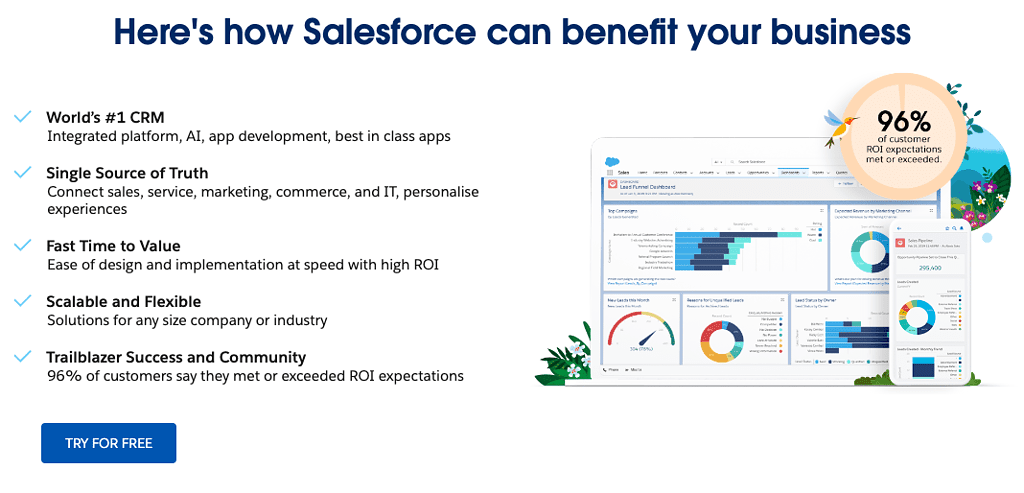10 Best Work from Home Tech Jobs
Are you tired of the daily commute and office politics?
Are you ready to embrace the flexibility and freedom of working from home?
Look no further!
The world of technology is constantly evolving, and with it, opportunities for work from home tech jobs. From software development to digital marketing, the demand for skilled professionals in the tech industry who can work remotely is rising.
In this blog post, we will dive into the various types of work-from-home tech jobs currently in high demand and explore the skills and qualifications required for each role.
Whether you’re a seasoned professional or just starting, this guide will help you navigate the exciting world of work-from-home tech jobs and find the perfect fit.
So, grab your laptop and a cup of coffee, and let’s start discovering the endless possibilities of working in the tech industry from the comfort of your own home.
Work from Home Tech Jobs
1. Web designer

A web designer is responsible for creating visually appealing and user-friendly websites. They typically use a combination of graphic design and web development skills to create websites that are both visually appealing and functional.
Web designers often work with a team of developers and may also work with clients to understand their specific needs and design a website that meets those needs.
They may use various tools such as Adobe Photoshop, Illustrator, and Sketch to create website layouts and graphics. They may also use web development languages such as HTML, CSS, and JavaScript to create the front end of websites.
Web designers may be involved in all aspects of website development, from designing the layout and user interface to coding and publishing the final product. They may also be responsible for testing the website to ensure it is responsive and works correctly on different devices and browsers.
Web designers can work remotely as long as they have an internet connection, as most of the tools they use are web-based, and they can communicate with their team members through tools like Skype, Zoom, Slack, etc.
How to Become a Web designer?
To become a web designer, you can start by learning the basics of HTML, CSS, and JavaScript, as these are the core technologies used in web development.
You can also learn about design principles and user experience (UX) design. You can take online courses or tutorials to learn these skills.
You can also gain experience by building websites or working on projects for friends or non-profit organizations. Consider obtaining a degree or certification in web development or a related field. Networking and building a portfolio of your work will also be helpful in finding job opportunities as a web designer.
2. Technical Writer

A technical writer creates technical documents such as user manuals, installation guides, technical specifications, and online help systems.
They are responsible for ensuring that technical information is presented clearly, concisely, and easily understood.
Technical writers may work in various industries, such as technology, engineering, healthcare, and finance, and may write for internal and external audiences.
The main goal of a technical writer is to make complex technical information easy to understand for a non-technical audience.
They research, write, and edit technical documents and create diagrams, illustrations, and other visual aids to help explain technical concepts.
Technical writers may also work with subject matter experts and stakeholders to ensure that the information they present is accurate and relevant.
For better writing, you can use this AI writing tool.
Easy Way to Create Better Content!
Advanced content editor with semantic models(NLP), Google SERP analysis, and competition data.
As a technical writer, you can work remotely if you have an internet connection and a Laptop. You may use tools such as word processing software, graphic design software, and collaboration tools to create and share documents with team members and clients.
Some of the responsibilities of technical writers may include the following:
3. Software engineer

A software engineer is a professional who designs, develops, and maintains softwares.
They are responsible for the full life cycle of software development, from requirements gathering and analysis to design, implementation, testing, and maintenance.
Software engineers use a variety of programming languages and technologies to create software applications, such as C++, Java, Python, Ruby, and JavaScript.
Software engineers are typically involved in the entire development process, from the initial planning stages to the final deployment of the software.
They may work on small projects, such as mobile apps, or large projects, such as enterprise software systems.
Software engineers may also be involved in maintaining and updating existing software systems, ensuring that they continue to function properly and meet users’ needs.
Software engineers can work remotely if they have an internet connection and the necessary tools for the job.
Remote software engineers may use tools such as version control systems, project management software, and communication tools to collaborate with their team members and clients.
Some of the responsibilities of software engineers may include the following:
4. Security Engineer

A Security Engineer is a professional responsible for designing, implementing, and maintaining an organization’s security infrastructure.
They are responsible for ensuring the confidentiality, integrity, and availability of the organization’s systems and data by implementing and maintaining security controls and protocols.
They are also responsible for identifying and mitigating potential security threats and vulnerabilities.
Security Engineers work with various security technologies such as firewalls, intrusion detection, and prevention systems, security information and event management (SIEM) systems, and virtual private networks (VPNs).
They may also be involved in the design and implementation of security policies and procedures, as well as the management of security incidents.
Security Engineers may use remote access tools such as VPN, Remote Desktop, and Cloud-based administration tools to manage the security infrastructure remotely.
In summary, a Security Engineer is a skilled professional responsible for protecting an organization’s systems and data by designing, implementing, and maintaining security infrastructure, identifying and mitigating potential security threats, and managing security incidents.
They play a critical role in ensuring the organization’s sensitive information’s confidentiality, integrity, and availability.
How to Become a Security Engineer?
To become a security engineer, you should have a solid understanding of computer science and network security. It’s also important to have hands-on experience with security tools and technologies.
5. Web developer

A Web Developer is a professional responsible for creating and maintaining websites and web applications. They use a variety of programming languages and technologies, such as HTML, CSS, JavaScript, and others, to build and optimize websites and web-based applications. Depending on their skillset, they may work on both the front-end and back-end of web development.
Web developers are responsible for creating visually appealing and user-friendly websites and web applications that meet the needs of their clients. As a Web Developer, you may work on different projects, from simple websites to complex web-based systems, and you may also be involved in maintaining and updating existing websites and web applications.
As a Web Developers, you can work remotely if you have an internet connection and the necessary tools for the job. You may use tools such as code editors, version control systems, and project management software to collaborate with team members and clients.
How to become a Web Developer?
To become a web developer, you can follow these steps:
- Learn the basics of HTML, CSS, and JavaScript. These are the core technologies used to build websites.
- Get familiar with web development tools such as text editors, browser developer tools, and version control systems.
- Learn a web development framework such as React, Angular, or Vue.js to build more complex websites and web applications.
- Learn a server-side programming language such as Python, Ruby, or JavaScript (Node.js) to create web applications that interact with a database and dynamic content.
- Gain experience building websites and web applications on your own or through a web development bootcamp or college course.
- Continuously learn and stay updated with the latest web development trends and technologies.
6. Salesforce Administrator

A Salesforce Administrator is a professional who is responsible for the configuration, maintenance, and support of a Salesforce CRM system.
They are responsible for managing the setup, customization, and maintenance of Salesforce to meet the needs of an organization.
Salesforce Administrators work with business users to understand their requirements and then configure Salesforce to meet those needs, including creating custom fields, objects, workflows, and reports.
Salesforce Administrators are responsible for ensuring that the Salesforce system is running smoothly and efficiently.
They may also be responsible for troubleshooting and resolving issues and providing training and support to end users.
They may also be involved in data management, including data imports, exports, and backup and recovery procedures.
As a Salesforce Administrators, you can work remotely as long as you have an internet connection and the necessary tools for the job.
Some of the responsibilities of Salesforce Administrators may include the following:
7. Social media manager

A Social Media Manager is a professional responsible for creating and implementing a company’s social media strategy.
They are responsible for developing and maintaining a company’s online presence on social media platforms such as Facebook, Instagram, Twitter, LinkedIn, and more.
They work to increase brand awareness and engagement, generate leads, and drive website traffic.
Social Media Managers are responsible for creating and curating content, managing social media campaigns, and analyzing metrics to measure the success of their efforts.
They also engage with customers and followers, responding to comments and messages and ensuring that the company’s social media channels are representing the company in a positive light. They also collaborate with other teams, such as marketing, sales, and customer service, to ensure that social media efforts align with overall business goals.
Social Media Managers can work remotely if they have an internet connection and a Laptop. They may use social media management, analytics, and collaboration tools to manage the social media channels and stay connected with the team.
How to Become a Social Media Manager?
To become a social media manager, you should understand the different social media platforms and their respective audiences.
You should also develop strong writing and communication skills. Having a background in marketing or communications is beneficial but only sometimes necessary.
You can gain experience by creating and managing social media accounts for your brand or a small business.
Many companies also offer internships or entry-level positions in their social media departments.
A portfolio of your work and a strong understanding of analytics and metrics can help you stand out to potential employers.
You can also consider getting a certification in social media marketing.
Continuing education and staying up-to-date on the latest trends and best practices in social media will also be important for success in this field.
8. Digital marketing specialist

A digital marketing specialist is a professional who specializes in developing and implementing marketing campaigns that promote a business or brand online.
This may include tasks such as creating and managing website content, social media profiles, and online advertising campaigns.
They use various digital channels such as email, social media, search engines and mobile apps to reach and engage with their target audience.
They also use analytics tools to measure the effectiveness of their campaigns and make data-driven decisions to optimize them.
How to Become a Digital Marketing Specialist
Becoming a digital marketing specialist typically involves the following steps:
- Obtain a bachelor’s degree in marketing, communications, or a related field.
- Gain experience through internships or entry-level positions in digital marketing. This can include working in social media management, email marketing, content creation, and analytics.
- Develop expertise in one or more areas of digital marketing, such as SEO, PPC, or social media advertising.
- Get certified in specific digital marketing tools or platforms like Google Analytics, Google Ads, and Facebook Blueprint.
- Continuously learn and stay up to date with the latest trends and best practices in digital marketing through attending workshops, seminars, and online courses.
- Network and build connections in the industry, join professional organizations and contribute to digital marketing communities.
Keep in mind that the specific requirements may vary depending on the employer and the job role, but the above steps can be considered as the general guide.
9. Cloud Solutions Architect
A Cloud Solutions Architect is a professional who designs and implements cloud computing systems for organizations. They are responsible for creating and maintaining the architecture of cloud-based systems and ensuring they meet the needs of the business. This includes tasks such as:
How to Become a Cloud Solutions Architect?
To become a Cloud Solutions Architect, it’s recommended to have a solid background in IT and experience with cloud computing, and relevant certifications for the cloud platforms you would like to specialize in.
10. DevOps Engineer

A DevOps Engineer is a professional who focuses on the relationship between software development and operations, working to bridge the gap between these two teams.
They are responsible for designing, building, and maintaining the infrastructure and tools that support the software development process. This includes tasks such as:
How to Become a DevOps Engineer?
To become a DevOps Engineer, it is recommended to have a background in software development and experience with IT operations, as well as knowledge of different operating systems, automation tools, and cloud computing platforms. Relevant certifications, such as AWS Certified DevOps Engineer, can also be helpful.
Conclusion
Working from home has become a popular trend recently, and technology has played a huge role in making this possible. Remote work has opened up a whole new world of possibilities for tech professionals, and the demand for work from home tech jobs is on the rise. From software developers to network engineers, a wide variety of tech roles can be done remotely.
However, the flexibility and freedom that comes with working from home also come with the need for discipline, self-motivation and time management. Having the right tools and equipment is essential to ensure smooth and efficient communication and collaboration with your team.
Overall, work from home tech jobs offer a great opportunity for tech professionals to balance their work and personal lives and provide companies with access to a global talent pool. As technology continues to evolve, we can expect to see even more work-from-home tech jobs in the future. So, if you’re looking for a career change or want to explore the possibilities of remote work, now is the time to start exploring the world of work-from-home tech jobs!
Read further on our blog






